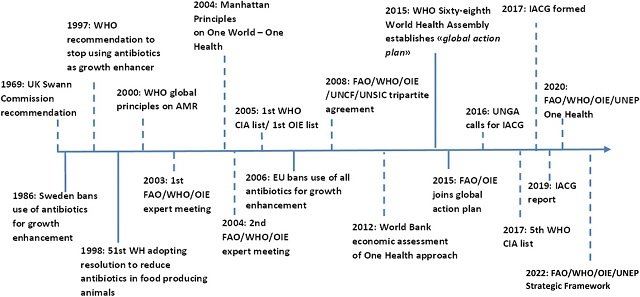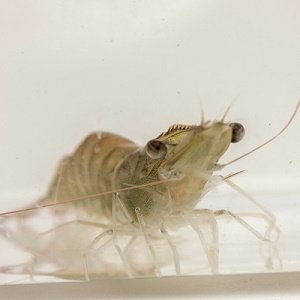
The growing global demand for seafood has driven a significant increase in aquaculture. However, this intensification of production has created health challenges, leading to the indiscriminate use of antibiotics to prevent and treat diseases in aquatic crops. This practice has contributed to the development of antimicrobial resistance (AMR), a major global public health problem.
A team of researchers from Södertörn University (Sweden), Leiden University (Netherlands), Stockholm University (Sweden), and the Royal Swedish Academy of Sciences published a scientific review in Aquaculture International. They describe how antimicrobial resistance (AMR) mitigation strategies have developed over time in international settings and their relation to aquaculture. Additionally, they analyze how different countries and regions comply with these statutes and antibiotic standards of selected certification schemes.
The Abuse of Antibiotics in Aquaculture
The intensification of aquaculture has led to a significant increase in antibiotic use to prevent diseases. However, this approach has had severe consequences. Antibiotics used in aquaculture can end up in the environment, contaminating water, soil, and sediments. This encourages the emergence of resistant bacteria, which can transfer to other species, including humans.
A key approach to addressing this issue is One Health. This concept recognizes the interconnectedness of human, animal, plant, and environmental health. It promotes interdisciplinary collaboration to develop effective strategies against AMR.
An Insufficient Regulatory Framework
International organizations such as FAO and WHO have recognized the importance of addressing AMR in aquaculture. Guidelines and recommendations have been established to minimize antibiotic use and prevent the spread of resistant bacteria.
However, the implementation of these regulations varies significantly between countries. While some nations have adopted strict measures, others lack a solid regulatory framework. This disparity creates challenges for international trade and contributes to the persistence of AMR.
The analysis of international and regional standards by researchers reveals a concerning lack of specific attention to aquaculture in the fight against AMR. Additionally, most certification schemes designed to ensure sustainable practices present ambiguous or insufficient standards regarding antibiotic use.
The Economic Impact of AMR in Aquaculture
The lack of adequate controls over antibiotic use in aquaculture has significant economic consequences. Countries with lax regulations may face trade restrictions and significant losses due to the detection of antibiotic residues in their products.
On the other hand, investing in sustainable practices and adopting international standards can generate long-term economic benefits by improving the sector’s image and accessing more demanding markets.
Stay Always Informed
Join our communities to instantly receive the most important news, reports, and analysis from the aquaculture industry.
Challenges in Implementing National Regulations
The study reveals that most countries have deficiencies in applying international recommendations and standards related to antibiotics in aquaculture. Allowing the use of high-priority antibiotics, according to WHO classification, is a common practice that compromises animal, environmental, and public health.
Implications for Animal, Environmental, and Public Health
The indiscriminate use of antibiotics in aquaculture has severe consequences. First, it compromises the health and well-being of aquatic animals, increasing their susceptibility to diseases. Second, the release of antibiotics and resistant bacteria into the environment poses a threat to aquatic biodiversity. Finally, and perhaps most importantly, the development of AMR in aquaculture contributes to the spread of resistant bacteria that can affect human health.
The Need for Action
It is evident that urgent measures are needed to address the AMR problem in aquaculture. This involves developing and implementing stricter regulations on antibiotic use, especially those of critical importance.
Furthermore, the aquaculture industry must adopt proactive strategies to reduce antibiotic dependency. Strengthening biosecurity, developing vaccines, using probiotics and prebiotics, and optimizing cultivation conditions are some promising alternatives. Additionally, it is crucial to promote research and development of new antimicrobials and alternative therapies.
Consumers also play a crucial role. Opting for seafood products from sustainable aquaculture certified by rigorous schemes can encourage producers to adopt responsible practices.
Conclusion
AMR represents a severe threat to the sustainability of aquaculture and global health. It is urgent to strengthen international and national regulations and promote the adoption of responsible practices in antibiotic use. The study’s main conclusions can be summarized as:
- International commitments have influenced national regulations on antibiotic use in aquaculture. This is a positive step, but there is still room for improvement.
- Regulations need to be stricter, especially regarding the prophylactic use of antibiotics, authorized antibiotics, and treatment frequency. Prophylactic use means using antibiotics to prevent diseases rather than treating them, which can contribute to antibiotic resistance.
- Better animal health management can significantly reduce antibiotic use. This includes aspects like improving water quality, reducing fish stress, and providing a nutritious diet.
- Proper farm management practices can further minimize antibiotic use. A well-managed farm may only need to use antibiotics three times or less per production cycle.
Overall, the study shows that progress is being made in reducing antibiotic use in aquaculture. However, more can still be done. By working together to improve regulations and implement best practices, we can help ensure a sustainable future for aquaculture.
The aquaculture industry must take a leading role in seeking innovative solutions to combat AMR and ensure the safe and responsible production of aquatic foods.
The open access to the study was funded by Södertörn University.
Contact
Ola Luthman
School of Natural Sciences, Technology and Environmental Studies, Södertörn University
Alfred Nobels Allé 7, 141 89, Huddinge, Sweden
Aquaculture Stewardship Council (ASC), Utrecht, The Netherlands
Email: ola.luthman@sh.se
Reference (open access)
Luthman, O., Robb, D.H.F., Henriksson, P.J.G. et al. Global overview of national regulations for antibiotic use in aquaculture production. Aquacult Int (2024). https://doi.org/10.1007/s10499-024-01614-0
Editor at the digital magazine AquaHoy. He holds a degree in Aquaculture Biology from the National University of Santa (UNS) and a Master’s degree in Science and Innovation Management from the Polytechnic University of Valencia, with postgraduate diplomas in Business Innovation and Innovation Management. He possesses extensive experience in the aquaculture and fisheries sector, having led the Fisheries Innovation Unit of the National Program for Innovation in Fisheries and Aquaculture (PNIPA). He has served as a senior consultant in technology watch, an innovation project formulator and advisor, and a lecturer at UNS. He is a member of the Peruvian College of Biologists and was recognized by the World Aquaculture Society (WAS) in 2016 for his contribution to aquaculture.







